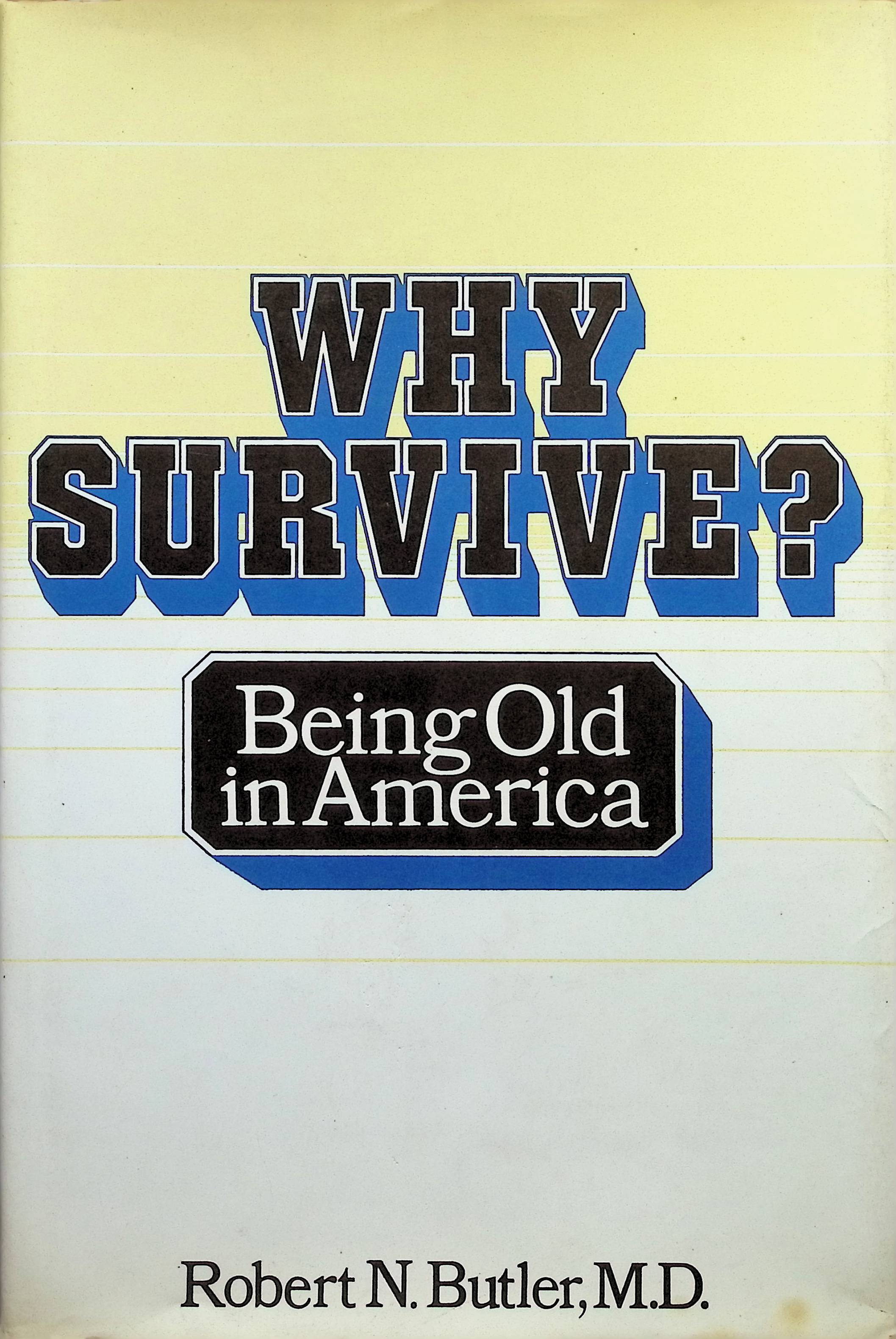Hardcover, 496 pages
English language
Published 1975 by Harper & Row.

Hardcover, 496 pages
English language
Published 1975 by Harper & Row.
In this angry and thoroughly documented bonk. Dr. Butler, a noted gerontologist and psychiatrist, balances the grim reality of what it is like to be old in America against the pieties that deny that reality. To look face-to-face at what it is to grow old in this country is to look at our own futures, and this is more than we can bear.
In most instances, to be old is to be poor. A lifetime of providence does not matter, because a rampaging inflation strips even the comfortable elderly of their resources; most of the elderly poor have become poor after they became old. To be old is to depend on inadequate and unsecured pensions, on Social Security that limits the option to work to be forced into retirement, to be the victim of marginal housing, of uncaring, inadequate and costly medical care, of community services deficient in street safety, …
In this angry and thoroughly documented bonk. Dr. Butler, a noted gerontologist and psychiatrist, balances the grim reality of what it is like to be old in America against the pieties that deny that reality. To look face-to-face at what it is to grow old in this country is to look at our own futures, and this is more than we can bear.
In most instances, to be old is to be poor. A lifetime of providence does not matter, because a rampaging inflation strips even the comfortable elderly of their resources; most of the elderly poor have become poor after they became old. To be old is to depend on inadequate and unsecured pensions, on Social Security that limits the option to work to be forced into retirement, to be the victim of marginal housing, of uncaring, inadequate and costly medical care, of community services deficient in street safety, convenient transportation, shopping, home care, recreational and social amenities. To be old is to be isolated and lonely. And to be old is to be the victim of a discrimination—ageism—as rampant and cruel as any prejudice for which the barricades have been manned.
America has read the elderly out of its lives. We turn our eyes away from wrinkled skin, infirmity, frailty, simple social intercourse, denying the old the opportunity to feel themselves part of society and ourselves the enrichment of our own lives through their experience, memories and perspective.
The literal costs are enormous. A patchwork of bureaucratic systems—Social Security, Medicare, housing regulations, service organizations—treats symptoms without evaluating basic policy. The waste of moneys and human resources is huge, and we are embarked on a collision course if we continue, because the percentage of our population over 65—one out of ten in 1970—will rise staggeringly with each decade.
WHY SURVIVE? is a public-policy book and a plea for altered values. Concrete programs are offered for changing the delivery of essential services and basic necessities. Dr. Butler also suggests ways for loosening up life so that learning, recreation, work and social interplay can continue throughout the life cycle. No issue in America today commands more urgency than the reality of old age. It is a burden to those who are old; it is a burden on those who are younger. We are all of us victims.